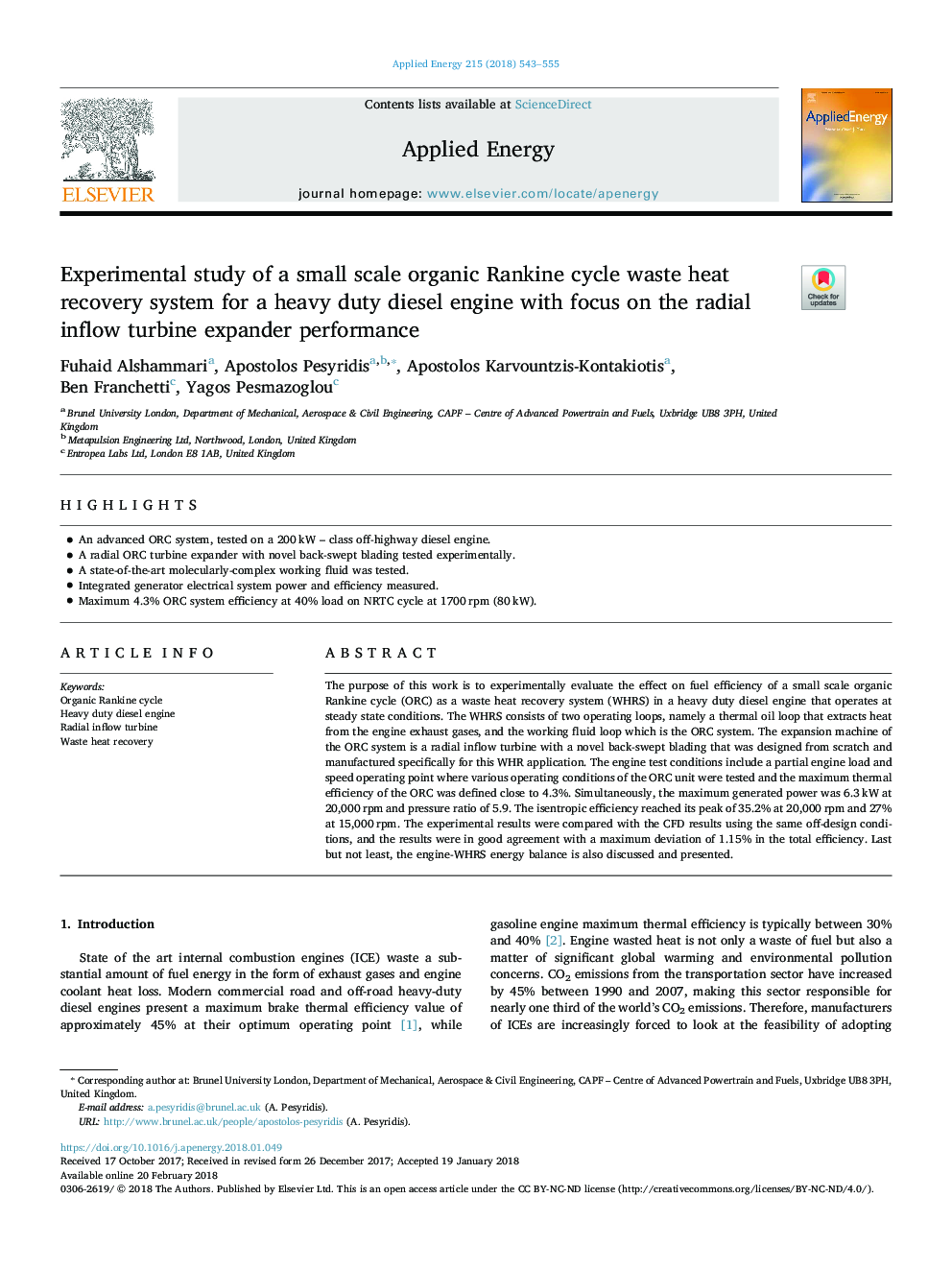| Article ID | Journal | Published Year | Pages | File Type |
|---|---|---|---|---|
| 6680680 | Applied Energy | 2018 | 13 Pages |
Abstract
The purpose of this work is to experimentally evaluate the effect on fuel efficiency of a small scale organic Rankine cycle (ORC) as a waste heat recovery system (WHRS) in a heavy duty diesel engine that operates at steady state conditions. The WHRS consists of two operating loops, namely a thermal oil loop that extracts heat from the engine exhaust gases, and the working fluid loop which is the ORC system. The expansion machine of the ORC system is a radial inflow turbine with a novel back-swept blading that was designed from scratch and manufactured specifically for this WHR application. The engine test conditions include a partial engine load and speed operating point where various operating conditions of the ORC unit were tested and the maximum thermal efficiency of the ORC was defined close to 4.3%. Simultaneously, the maximum generated power was 6.3â¯kW at 20,000â¯rpm and pressure ratio of 5.9. The isentropic efficiency reached its peak of 35.2% at 20,000â¯rpm and 27% at 15,000â¯rpm. The experimental results were compared with the CFD results using the same off-design conditions, and the results were in good agreement with a maximum deviation of 1.15% in the total efficiency. Last but not least, the engine-WHRS energy balance is also discussed and presented.
Related Topics
Physical Sciences and Engineering
Energy
Energy Engineering and Power Technology
Authors
Fuhaid Alshammari, Apostolos Pesyridis, Apostolos Karvountzis-Kontakiotis, Ben Franchetti, Yagos Pesmazoglou,
